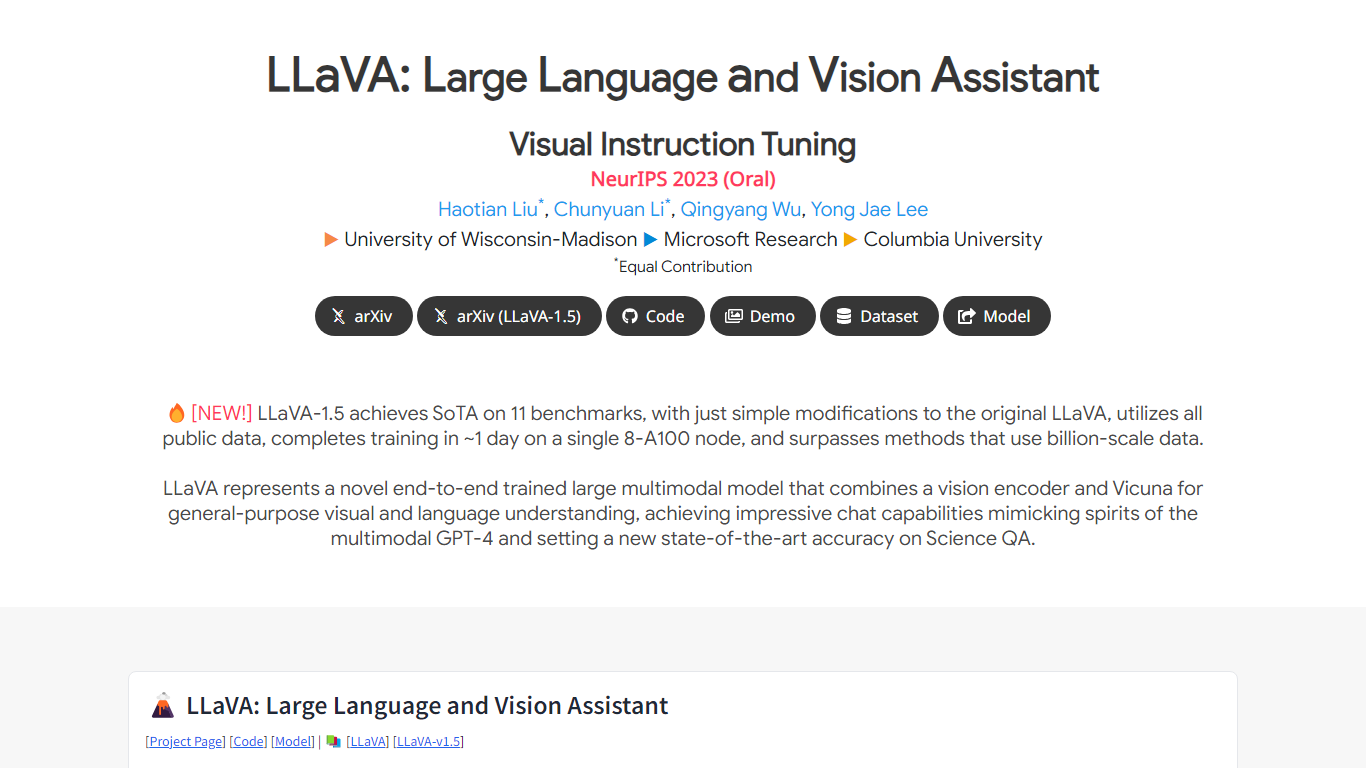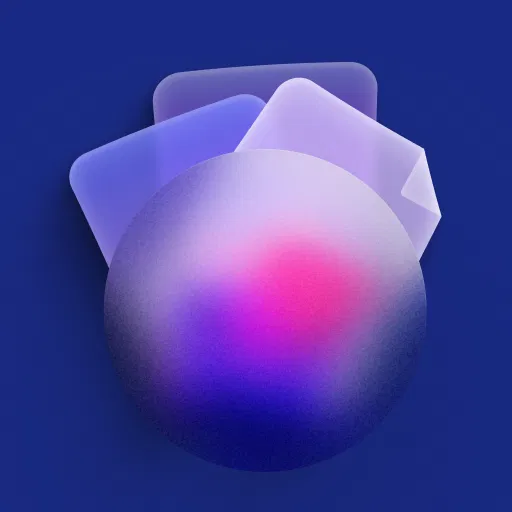LLaVA vs Codex
In the clash of LLaVA vs Codex, which AI Code Assistant tool emerges victorious? We assess reviews, pricing, alternatives, features, upvotes, and more.
When we put LLaVA and Codex head to head, which one emerges as the victor?
Let's take a closer look at LLaVA and Codex, both of which are AI-driven code assistant tools, and see what sets them apart. With more upvotes, LLaVA is the preferred choice. LLaVA has been upvoted 6 times by aitools.fyi users, and Codex has been upvoted 5 times.
Disagree with the result? Upvote your favorite tool and help it win!
LLaVA

What is LLaVA?
Discover the cutting-edge capabilities of LLaVA, the Large Language and Vision Assistant, featured at NeurIPS 2023 with an oral presentation. This remarkable tool integrates visual instruction tuning to enhance AI performance across various tasks. Dive into the collaborative works of Haotian Liu, Chunyuan Li, Qingyang Wu, and Yong Jae Lee, esteemed researchers from the University of Wisconsin-Madison, Microsoft Research, and Columbia University. Each has equally contributed to this groundbreaking project.
With resources readily available, including preprints on arXiv and version updates like LLaVA-1.5, LLaVA offers an array of assets to the AI community. Users can access the source code, a live demo, comprehensive datasets, and the model itself. These invaluable tools serve as a backbone for researchers and practitioners looking to advance their projects in language and visual AI applications.
Codex

What is Codex?
OpenAI Codex is the latest advancement from OpenAI, a cutting-edge AI system designed to understand and translate natural language into code. This powerful tool is now available through a private API in private beta, broadening its accessibility for businesses and developers aiming to create more intuitive natural language interfaces for their applications.
OpenAI Codex excels at a range of programming tasks, including transpilation, code explanation, and refactoring. It supports a wide array of programming languages such as Python, JavaScript, Go, Perl, PHP, Ruby, Swift, TypeScript, and even Shell, making it an incredibly versatile coding assistant. Its 14KB memory for Python code means it can handle complex contextual information with ease, offering more comprehensive coding solutions compared to its predecessor, GPT-3. OpenAI Codex not only boosts productivity by simplifying the coding process but also lowers the barrier to entry for programming, opening doors for non-coders to interact with software in a more manageable way.
LLaVA Upvotes
Codex Upvotes
LLaVA Top Features
Collaborative Effort: A joint project by renowned institutions University of Wisconsin-Madison Microsoft Research and Columbia University showcasing equal contribution from each researcher.
LLaVA 1.5 Updated Version: Access to the latest improvements and features of the LLaVA model.
Comprehensive Resources: Includes access to the project's arXiv preprints source code demo datasets and model for community use and contribution.
NeurIPS Oral Presentation: The project's recognition and presentation at a prestigious AI conference highlights its significance in the field.
Visual Instruction Tuning: A specialized focus on enhancing AI's understanding of visual content in combination with language models.
Codex Top Features
Improved AI System: OpenAI Codex is an advanced system that turns natural language into code.
Support for Multiple Programming Languages: Capable in Python, JavaScript, Go, Perl, PHP, Ruby, Swift, TypeScript, and Shell.
Larger Contextual Memory: Offers a 14KB memory for Python code, allowing for complex tasks.
Versatile Functionality: Suitable for transpilation, code explanation, and refactoring.
Accessibility through API: Released in private beta for developers and businesses to build upon.
LLaVA Category
- Code Assistant
Codex Category
- Code Assistant
LLaVA Pricing Type
- Freemium
Codex Pricing Type
- Freemium
